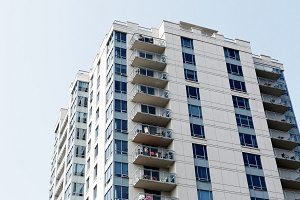
Pollution Releases at Apartments, Condos, and Other Habitational Properties
Possible risks and points to consider when helping apartments/condos, hotels, hospitals, senior care centers, and other habitational sites secure coverage.
Insureds in the habitational industry may have serious environmental exposures. While the insurance focus is often on liability involving resident, guest, or worker injury, this industry faces significant, routine exposures to pollutants.
Because of the Pollution Exclusion, General Liability insurance policies typically won’t cover pollution events, and because of changes in the site pollution market this year, carriers may limit the kinds of contaminants they will accept for triggering a policy. Additionally, Property policies may have exclusions that affect pollution cleanup. If damage occurs from a pollution release, the Property policy may not address build back, renovations, business interruption, etc.
Considerations for Pollution Releases on Habitational Properties
Mold & Legionella
When residents or visitors are at a healthcare center, hotels, hospitals, etc., microbial matter (including mold) may infiltrate residential areas on dust particles, biohazard wastes may accumulate in many areas of the facility and be released into the air, and legionella may stem from HVAC systems, water supplies, or water intrusion/leaks.
Asbestos and Lead
Older apartments, hotels, and other facilities may have asbestos insulation and floor tiles, as well as lead paint on doors and walls (this includes dust on windowsills and door jams from renovation activities). Unfortunately, the “charm” that comes with older properties may also come with these concerns for residents and guests. Both substances can cause harm to people and need to be handled and disposed of by professionals.
Chemicals
Whenever there are chemicals involved, products must be labeled properly, stored appropriately, and then used and disposed of safely. Aside from chemical inhalation and spills on the skin, there is a risk of burns caused by fires accelerated by chemicals. Dangerous chemicals should be securely stored, out of reach of clients. They should never be stored in or near containers for food or beverages – and labels should always meet health and safety requirements for labeling hazardous materials (which stipulates that safety data sheets should be readily available in case first aid is required).
Carbon Monoxide
This is a colorless, odorless, and tasteless gas that is toxic to humans above a certain level. Malfunctioning boilers, furnaces, water heaters, or back-up generators may be a source of this gas. At levels of 50% air and 50% carbon monoxide, it may result in seizures, coma, and fatalities.
Other specific habitational exposures may include:
- Oil or gas furnaces and boilers for heating, cooling, and hot water.
- Off gassing fumes from carpeting or cabinetry.
- Gas appliances in restaurant or bar kitchens.
- Diesel oil for emergency generators.
- Carbon monoxide from vehicles in underground parking garages.
- Diesel or gasoline for vehicles or garden maintenance equipment.
- Legionella from stagnant warm water in hot tubs, sauna and shower heads.
- Hazardous cleaning chemicals such as bleaches, solvents, or surfactants.
- Mercury in compact fluorescent lamps (CFLs).
- Pesticides, herbicides, or insecticides.
- Tanks or cylinders of liquified petroleum gas (LPG) for heating, cooking, or for lines to run beverages from a storage area to a bar.
- Pool chemicals fumes in fitness centers.
Insureds in the hospitality industry manage various systems, including but not limited to HVAC/mechanical systems, plumbing, and roofing. The mismanagement or neglect of these systems can lead to pollution releases. Concerns associated with this may be faulty installation, poor maintenance, inadequate ventilation, and improper storage of substances used to maintain these systems.
Loss Control Measures
Risk management activities are often put in place to decrease the possibility that a loss will occur and/or reduce the severity of those that do occur. By implementing a loss control program, a habitational business can evaluate potential exposures that could result in a pollution claim. These efforts can range anywhere from mold prevention plans to crisis management plans.
Do you have questions about a habitational account? Need information on mold, indoor air quality, or other exposures? Email us or call (800) 596-2156.
Type: Blog
Topic: Apartments, Condos, Habitational